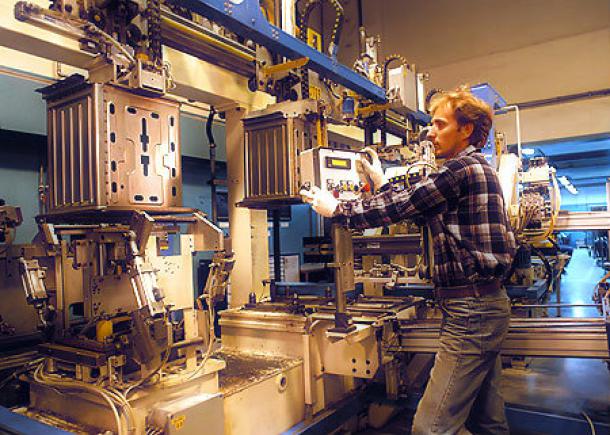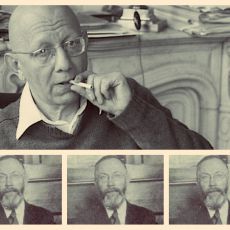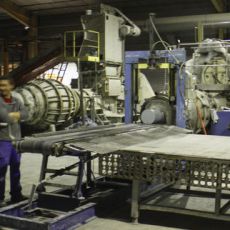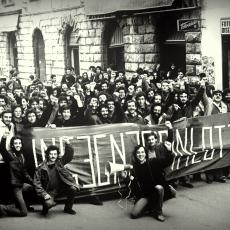A Deeper Look at the Mondragon Principles 1: Sovereignty of Labor
Overcoming the Rift Between Worker Coops and the Labor Left
The Mondragon principle “Sovereignty of Labor” created departure from the cooperative movement. While the Rochdale Pioneers had good intentions, they abandoned worker cooperation in the 1870’s. The Fabian Socialist moved even further from the ideals of Robert Owen declaring consumerism as the lowest common denominator for human relationships eschewing workers as merely another stakeholder group. Even the French cooperativist Charles Gide turned away from worker associations. Sadly, this act left the labor movement adrift from the cooperative world even as organizations such as the Industrial Workers of the World and the Congress of Industrial Organizations developed worldviews akin to the ideal of cooperation.
In the US, as in most of the Capitalist dominated world, the idea of labor being sovereign is almost non-existent. Business schools spend a lot of money teaching future managers how to manage workers—increase their productivity and the companies profits Except in the more enlightened firms, managers treat workers as errant children. Likewise, the dominant culture makes work something to be avoided and champions obstruction as “fighting the man”. People who do work hard tend to be treated as suck-ups and “upwardly mobile”. We mock the Ragged Dick stories in which “by luck and by pluck and good boy may succeed”. We have been conditioned to hate work and to distrust anyone who suggests that we work hard. The wobblies ran a cartoon called Blockhead who ridiculed the “company man”.
A part of me says, “damn straight!” why should workers gleefully assist the people exploiting them? The life of a worker under capitalism is not any better than it was under feudalism. In some ways, it is worse. The bond between serf and lord was based on land, food and safety. Capitalism replaced those bonds of survival by monetizing them and making currency the commonality of humanity. The chattel slave became the wage slave in the first round of outsourcing that allowed the owner to reduce or eliminate the cost of housing and feeding the workers in their employ.
The Jesuits had a different tradition, thankfully. St. Ignatius, founder of the Jesuit Order, took his vows of celibacy just a few kilometers from Mondragon in the foothills overlooking Onati. The Basque followers of St. Ignatius believed that work could lead to transformation and salvation. In the Spanish Empire they attempted to covert the native Americans of the Tipu-Guarni* through worker collectives known at Jesuit Reductions and immortalized in the movie, The Mission. It was a modern day member of their order, Don José María Arizmendiarreta (DJMA) who would bring that ethic to the small town of Mondragon and teach five young mean the value of cooperation.
The Principles of Mondragon Cooperative Corporation state:
“The Mondragon Cooperative Experience considers that Labour is the principal factor for transforming nature, society and human beings themselves, and therefore:
a) Renounces the systemic contracting of salaried workers
b) Gives labour total primacy in the organization of cooperatives
c) Considers Labour to be worthy, in essence, in the distribution of the wealth created.
d) Manifests its will to extend the options for work to all members of the society.”
There should be a different culture in worker cooperatives, where the workers truly own and control the company. However, waving a magic wand cannot do it. To this end, it is important for worker cooperatives to adopt the notion of the sovereignty of labor. We need to instill a cooperative work ethic in our organizations. Not a work ethic based on enriching others (or even consumers for that matter), but of social transformation or us and our peers based on honesty, openness, and solidarity and caring for others.
Don Jose spoke often on this topic. “Man transforms and makes nature fertile through his labour,” he wrote”, and labour is the greatest asset that the community possesses: to live with dignity, one must embrace work.” Of DJMA, did not mean a mindless embrace of the protestant work ethic to benefit the sputtering Franco economic engine. He meant that workers should own their labor. They should be, as another Jesuit priest from the previous generation argued, “Masters of their Destiny”.
That is the point of this principle. We, as workers, should honor work. We should give to our cooperatives 100% of our effort. When we do this, we begin to transform ourselves and our community creating something of greater value. We must honor all work and recognize that all of those who work as members of our cooperative (or as people who may become members). Sometimes, this work ethic can turn itself on its head and we regard the presence of “management” or “leaders” as we would in the outside world. This is an incorrect understanding of this principle. Sr. Ormaechea denounces the “duplicity of individualism” which might make those of us in the US wince a bit. However, the sovereignty of labor is in relation to capital not individuals. In the capitalist world, we have learned that managers and leaders tend to be the agents of capital, not labor (sadly this is even true of some labor leaders). The role of the cooperative should be to empower all workers. Management or leaders (as we shall see) come from the workers and belong to them—they are not alien to the work force, but part of it.
We do not invoke this principle by emulating Talyorist strategies or adopting a proprietor’s attitude towards co-workers. Treating our fellow members as our employees is not the correct method of expressing the sovereignty of labor. Instead, we embrace this principle by developing each other as co-leaders in our enterprise. We operationalize this principle by making decisions that enrich the lives of the workers (in terms of safety, education, and health) over the base need for profit. We honor this principle by treating each other as equals and as humans deserving of our respect and love. By doing these things, we change the nature of work from an act of necessity to one of social transformation. We overcome the cultural animosity acquired from being a wage slave to create a new culture of mutual self-help and self-responsibility.
*The currency of Paraguay is the Guarni, which represents the historic measure of wealth in the region (how many Guarni were owned by the Spanish slaveholders)






Comments
Post new comment